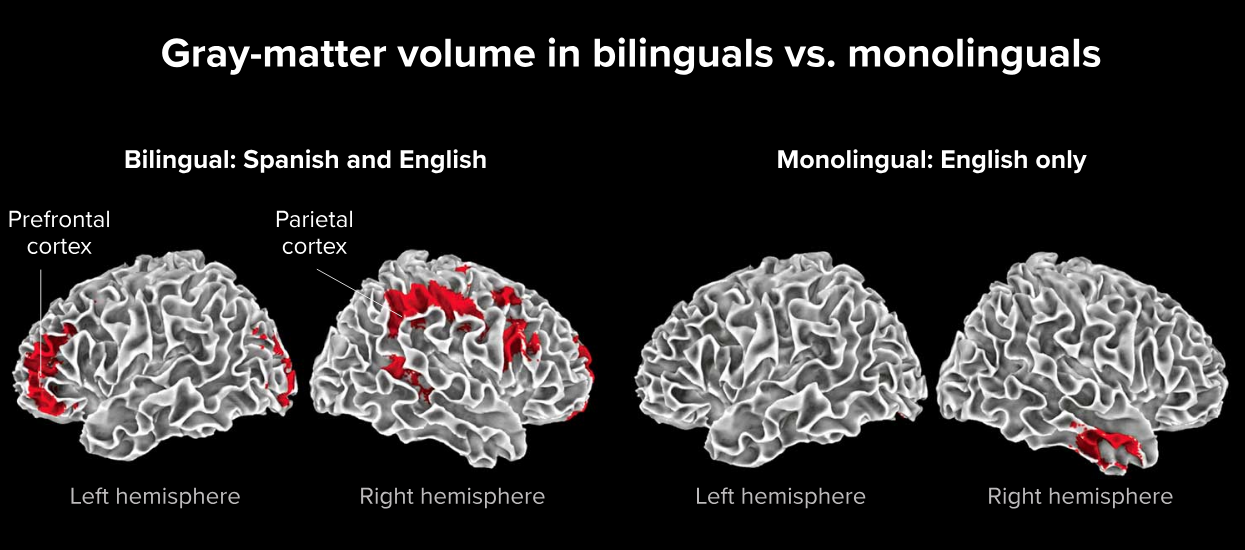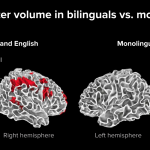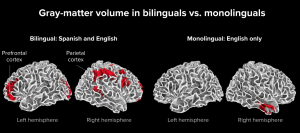Being bilingual or multilingual confers many benefits, from cultural connections to academic opportunities. In addition, research shows that it fortifies the brain, boosting grey-matter volume and white-matter integrity in areas affecting executive function: humans’ ability to control their behavior.
The cognitive benefits of bilingualism are still being studied, fuelling a debate to be featured in the Annual Review of Linguistics January 2019 issue (volume 5). Meanwhile, contributor Mark Antoniou, psycholinguist at the MARCS Institute for Brain, Behaviour and Development, Western Sydney University, describes what IS known in this interview at Knowable Magazine. Worth a read!
Image: Results from a study measuring gray-matter volumes in bilingual or monolingual undergraduates, discussed by Mark Antoniou at Knowable Magazine, 29 November 2018.



January 8, 2019 at 3:30 pm
And in the case of studying written Thai…a language where the consonants have imagery associated with the sounds…the experience is ‘extra sensory’. Example is ‘klong’คลอง..it is interesting of the k consonants which k consonant is selected…คอ ควาย of course and the choice for the L sound…ลอ ลิง of course and the NG sound…งอ งู. What would a klong be when the word was first ‘created’ in Thai script other than a water buffalo, a monkey and a snake. Bilingualism…the beauty of culture is hidden in its language if you dig deep. ISB 1960-62